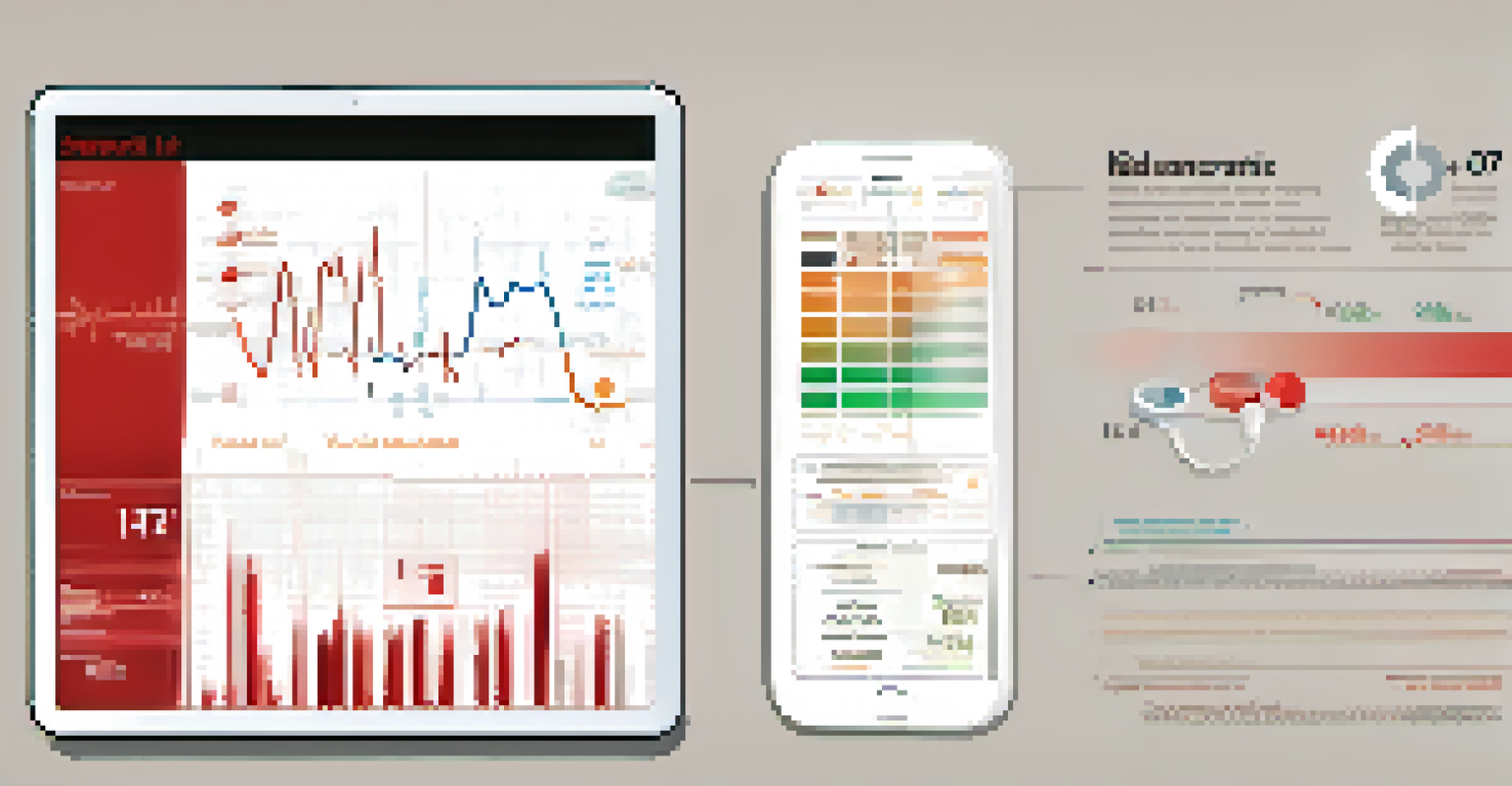How to Identify Red Flags During Health Check-Ups

Understanding the Importance of Health Check-Ups
Health check-ups are essential for maintaining overall well-being. They help in early detection of potential health issues, making it easier to address them before they become serious. Think of these check-ups as routine maintenance for your body, much like getting an oil change for your car.
An ounce of prevention is worth a pound of cure.
During these appointments, doctors assess various aspects of your health, from blood pressure to cholesterol levels. Identifying red flags can empower you to take proactive steps towards a healthier lifestyle. By being aware of what to look for, you can ensure that your health remains a priority.
Regular check-ups also foster a stronger relationship with your healthcare provider. This partnership is crucial, as it encourages open communication about your health concerns. So, it’s vital to be attentive and involved during these visits.
Recognizing Common Red Flags in Vital Signs
Vital signs, including heart rate, blood pressure, and temperature, are crucial indicators of your health. If you notice significant changes in any of these readings, it may signal an underlying issue. For instance, a consistently high blood pressure reading could indicate hypertension, which requires further investigation.

It's essential to know what your normal ranges are, so you can quickly identify when something feels off. If your doctor mentions any concerning trends, don't hesitate to ask questions about what they mean. Understanding your body’s signals can empower you to advocate for your health.
Health Check-Ups Are Essential
Regular check-ups help in early detection of health issues, allowing for proactive management.
Additionally, keeping a record of your vital signs over time can help you and your doctor notice patterns or abnormalities. This proactive approach not only aids in identifying red flags but also shows your commitment to your health.
Being Aware of Unexplained Symptoms
Unexplained symptoms, such as sudden weight loss or persistent fatigue, should never be ignored. These signs can often indicate something more serious lurking beneath the surface. For example, unintentional weight loss could be a red flag for conditions like thyroid disorders or even diabetes.
The greatest wealth is health.
During your check-up, make sure to share any unusual symptoms with your healthcare provider. They can help determine if further testing or evaluation is necessary. Remember, being candid about your health can lead to timely interventions.
Moreover, don’t dismiss symptoms just because they seem minor. Sometimes, small issues can be interconnected, revealing a more significant health concern. Keeping an open line of communication with your doctor is vital.
Watching for Changes in Mental Health
Mental health is just as important as physical health. Changes in mood, anxiety levels, or sleep patterns can be significant red flags. For instance, if you find yourself feeling anxious or depressed without any apparent reason, it’s worth discussing with your doctor.
Your mental well-being can impact your physical health and vice versa. Thus, recognizing when you need support is crucial. Health check-ups should include conversations about mental health, as it plays a vital role in your overall wellness.
Recognize Red Flags in Health
Being aware of changes in your vital signs and unexplained symptoms empowers you to advocate for your health.
If your doctor doesn’t bring it up, don’t hesitate to initiate the conversation. They can recommend resources or strategies to help you manage your mental health effectively, ensuring you’re not just physically healthy but mentally well too.
Understanding Family Medical History
Your family medical history can provide vital clues about your health risks. Knowing which conditions run in your family can help you and your doctor identify potential red flags. For example, a family history of heart disease might prompt your doctor to monitor your cardiovascular health more closely.
During health check-ups, be prepared to discuss your family history openly. This information can guide your healthcare provider in tailoring your screening and prevention strategies. It’s like having a map that helps navigate your health journey.
If you're unsure about your family's health history, consider reaching out to relatives for information. This proactive step can play a significant role in your health management.
The Role of Lifestyle Factors in Health
Lifestyle choices, such as diet, exercise, and smoking, can significantly affect your health. During check-ups, your doctor will likely ask about these factors. Being honest about your habits can help identify red flags related to your lifestyle choices.
For instance, a sedentary lifestyle may lead to weight gain and increased risk of chronic diseases. Recognizing this early can motivate you to make necessary changes. Think of your health as a garden; the more care you put in, the better it flourishes.
Build Trust with Your Doctor
A strong relationship with your healthcare provider encourages open communication about your health concerns.
Moreover, understanding the link between lifestyle and health can empower you to make informed decisions. This knowledge is key to preventing potential health issues before they arise.
Taking Action on Red Flags Identified
Identifying red flags is just the first step; taking action is where the real difference lies. If your check-up reveals any concerning signs, don’t hesitate to follow up with your doctor. They can provide guidance on the next steps, whether that means further testing or lifestyle changes.
Being proactive about your health can prevent minor issues from developing into more severe conditions. Think of it as being your own health advocate; you have the power to influence your well-being. This approach not only helps you feel better but also fosters a healthier future.

Additionally, consider seeking second opinions if you're unsure about the advice you receive. It’s essential to feel confident and informed about your health decisions.
Building a Strong Relationship with Your Doctor
A strong, trusting relationship with your healthcare provider is invaluable. This connection allows for open conversations about your health concerns and red flags. If you feel comfortable, you’re more likely to discuss any issues that arise during check-ups.
Taking the time to establish rapport with your doctor can lead to better health outcomes. Trust encourages you to be honest about your symptoms and lifestyle, which is crucial for accurate assessments. Think of your doctor as a partner in your health journey.
So, don’t hesitate to ask questions or express concerns during your appointments. A collaborative approach to healthcare ensures you’re both on the same page, ultimately leading to improved health and well-being.